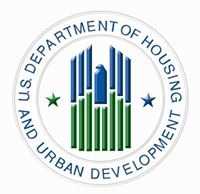Alert: 2023’s End Threatens Top Cities with Impending Foreclosure Crisis
It doesn’t matter if you’re a homeowner, homebuyer, or investor, it’s important to have a solid grasp of the real estate market. As 2023 comes to an end, many cities are staring down the barrel at an impending foreclosure crisis.
Foreclosure threats in top cities signify a concerning trend in the real estate market, often reflecting broader economic challenges such as job loss, income instability, and/or high debt levels.
Unfortunately, these market conditions can lead to a decrease in property values, erode community stability, and exacerbate urban housing crises.
Which Cities Are at Risk?
As you evaluate foreclosure trends as a whole, you’ll come to find that specific areas are at greater risk than others. Regardless of your circumstances, it’s critical to understand which cities are most vulnerable to a foreclosure crisis. This allows you to take steps accordingly.
According to data from CoreLogic, these markets have the highest risk of home price decline in 2024.
- Cape Coral-Fort Myers, Florida
- Youngstown-Warren-Boardman area (covers Ohio and Pennsylvania)
- Atlanta-Sandy Springs-Roswell area, Georgia
- West Palm Beach-Boca Raton-Delray Beach, Florida
- Deltona-Daytona-Beach-Ormond Beach, Florida
Here are 10 additional cities where foreclosure rates increased during the second half of 2023:
- Atlantic City, New Jersey
- Florence, South Carolina
- New Haven, Connecticut
- Baltimore, Maryland
- Mobile, Alabama
- Orlando, Florida
- Macon, Georgia
- Philadelphia, Pennsylvania
- Peoria, Illinois
- Modesto, California
Factors Contributing to Foreclosure Threats
There’s no shortage of factors contributing to foreclosure threats. Some of these are more impactful than others, but they all require your attention.
Economic indicators play a critical role in understanding foreclosure trends, particularly unemployment rates and broader economic slowdowns. High unemployment rates directly impact homeowners’ ability to meet mortgage obligations, often leading to an increased rate of foreclosures.
Also, economic slowdowns can tighten credit markets, reduce incomes, and elevate the risk of property owners defaulting on loans. Market fluctuations, including changes in housing prices and interest rates, also significantly influence foreclosure trends. A drop in housing prices can result in negative equity, where homeowners owe more on their mortgages than their properties are worth, increasing foreclosure likelihood.
Conversely, rising interest rates make mortgage repayments more expensive, straining household finances.
Additionally, legal and regulatory changes play a pivotal role in shaping foreclosure dynamics. Changes in laws and policies can either mitigate or exacerbate foreclosure rates, depending on their nature and implementation. These factors combined provide a comprehensive view of the forces driving foreclosure trends in the real estate market.
Impact on Homeowners and Investors
The rising threat of foreclosure impacts both homeowners and investors. If you fit into either group — or both — understanding the potential impact allows you to make more informed decisions.
For homeowners, the impact of foreclosures manifests as financial stress and housing instability. Financial stress arises as homeowners struggle to keep up with mortgage payments amid changing economic conditions. This stress is compounded by the threat of losing their home, leading to a sense of insecurity and uncertainty about the future.
Housing instability becomes a critical issue when foreclosure is finalized, often resulting in displacement and the challenge of finding affordable housing.
On the other hand, these foreclosure trends create unique opportunities for investors. The increase in foreclosures often leads to a rise in distressed property markets, where homes can be purchased at significantly lower prices than their market value. This situation presents a potential for high returns on investment, attracting investors to these bargain properties.
Investors can capitalize on these conditions, acquiring properties at reduced costs during periods of high foreclosure rates. However, this investment strategy requires an understanding of the market and the ability to navigate the complexities of purchasing distressed properties.
How to Avoid Foreclosure
If you’re concerned about foreclosure and see the writing on the wall, here are five tips you can use to get back on track.
- Prioritize budgeting and financial planning: Create a realistic budget to manage your expenses effectively. Prioritizing mortgage payments and cutting down on non-essential expenses can help you stay on top of your financial obligations.
- Seek loan modification or refinancing: If you’re struggling with high mortgage payments, contact your lender to discuss loan modification or refinancing options. These options can potentially lower your monthly payments and make them more manageable. Remember, your lender would rather help you than foreclose on your home.
- Build an emergency fund: Establishing an emergency fund can provide a financial cushion in times of unexpected expenses or income loss. Aim to save enough to cover several months (six is ideal) of living expenses, including mortgage payments.
- Utilize government programs and assistance: Explore government programs designed to help homeowners in financial distress. These programs can offer temporary relief or assistance in restructuring your mortgage.
- Seek professional financial advice: Consult with a financial advisor or a housing counselor for personalized advice on managing your mortgage and finances. Professional guidance can help you navigate financial challenges and explore different options to avoid foreclosure.
And remember, you don’t want to hide from foreclosure. Should you receive a foreclosure notice from your lender, contact them directly to discuss your situation and options.
Navigating Foreclosure Listings: How to Find Deals in Top Cities
Investing in foreclosures means constantly navigating online listings. Here are some simple steps you can follow to find deals in top cities.
- Research and utilize online resources: Start by exploring online databases and real estate websites like Bank Foreclosures Sale which specializes in foreclosure listings. Platforms like the one mentioned often provide comprehensive details about foreclosed properties in various cities, allowing you to compare deals and locations efficiently.
- Connect with local real estate agents: Local agents have in-depth knowledge of the foreclosure market in their cities. They can offer valuable insights into the best deals and guide you through the purchasing process, including navigating complex legal and financial aspects.
- Attend foreclosure auctions: Auctions are a direct way to access properties in foreclosure. Be prepared for competitive bidding and understand the auction rules, as these events can be fast-paced and require immediate payment.
- Monitor bank and government listings: Banks and government agencies list foreclosed properties on their websites. Regularly checking these sites can reveal new opportunities in top cities, often at lower prices than the regular market.
- Network with real estate investors and groups: Joining local real estate investment groups or networking with individual investors can lead to tips on upcoming or unlisted foreclosures. These communities often share valuable information and resources for finding the best deals in top cities.
Final Thoughts
In anticipation of a foreclosure wave in 2024, taking proactive steps is a must. It’s important to stay informed about market trends and legal changes impacting foreclosures.
Homeowners should assess their financial health, seek professional advice, and explore refinancing or loan modification options to prevent foreclosure (should this be a risk).
Conversely, investors can prepare by researching the market, building networks, and setting aside funds for potential investments.
Staying proactive, informed, and adaptable is key to navigating the challenges and opportunities of a foreclosure wave.










